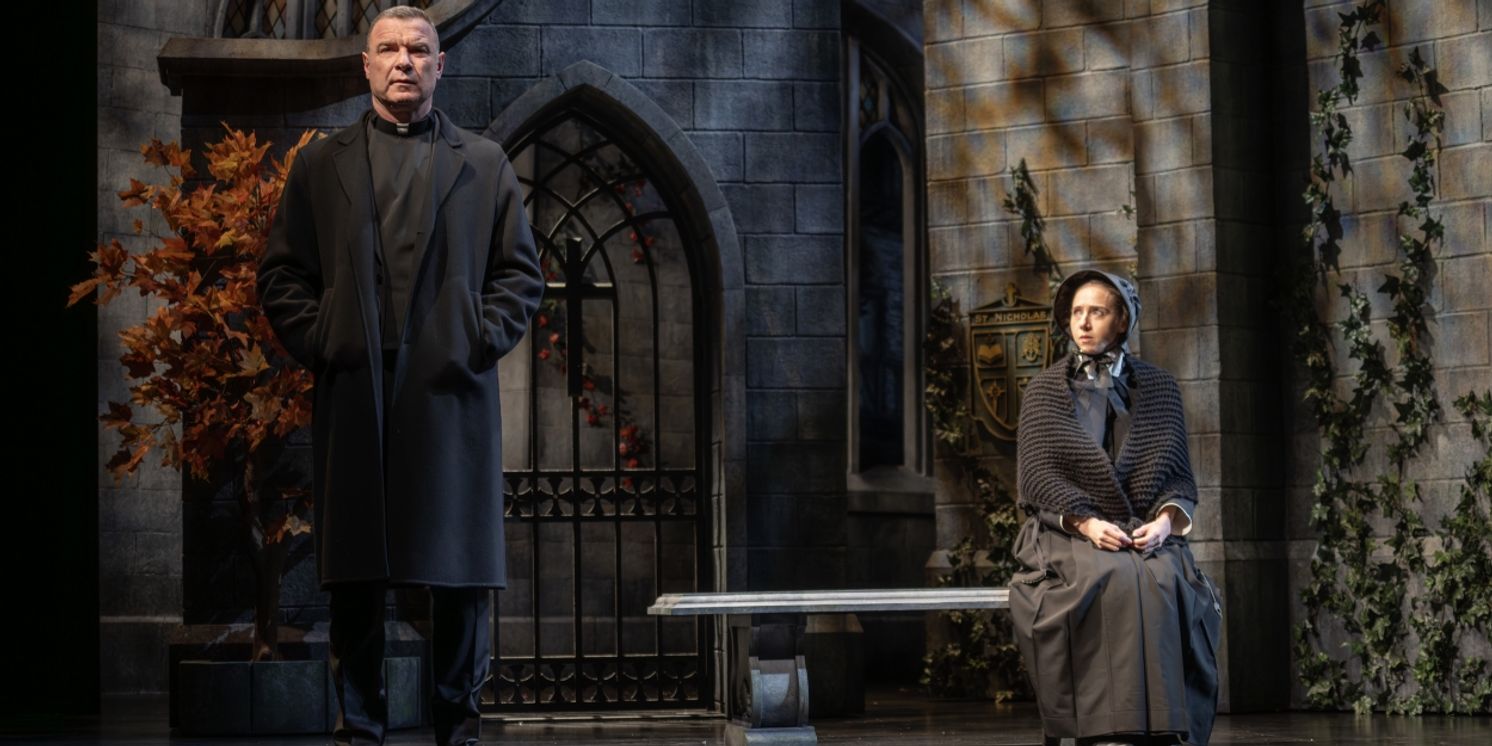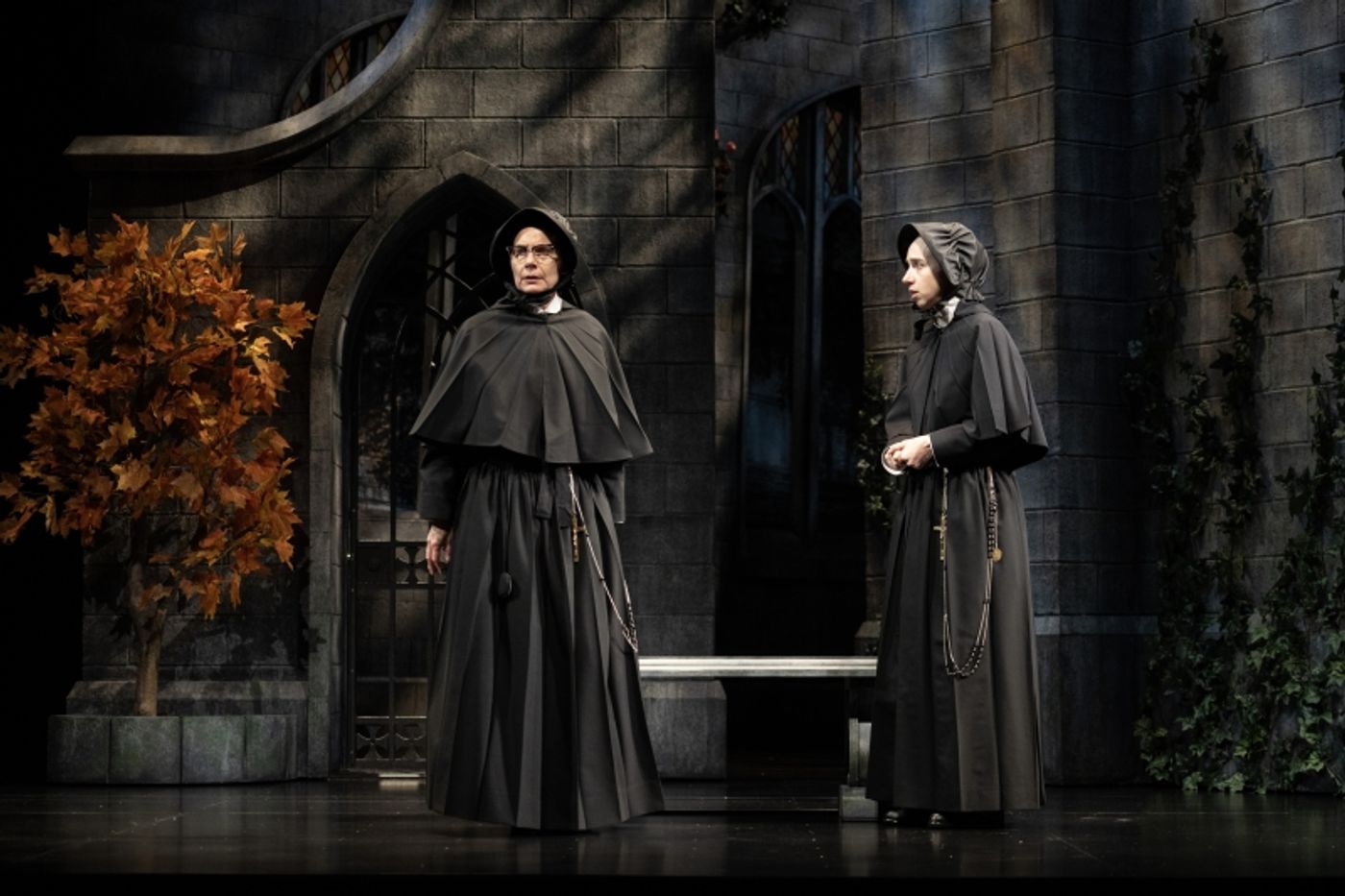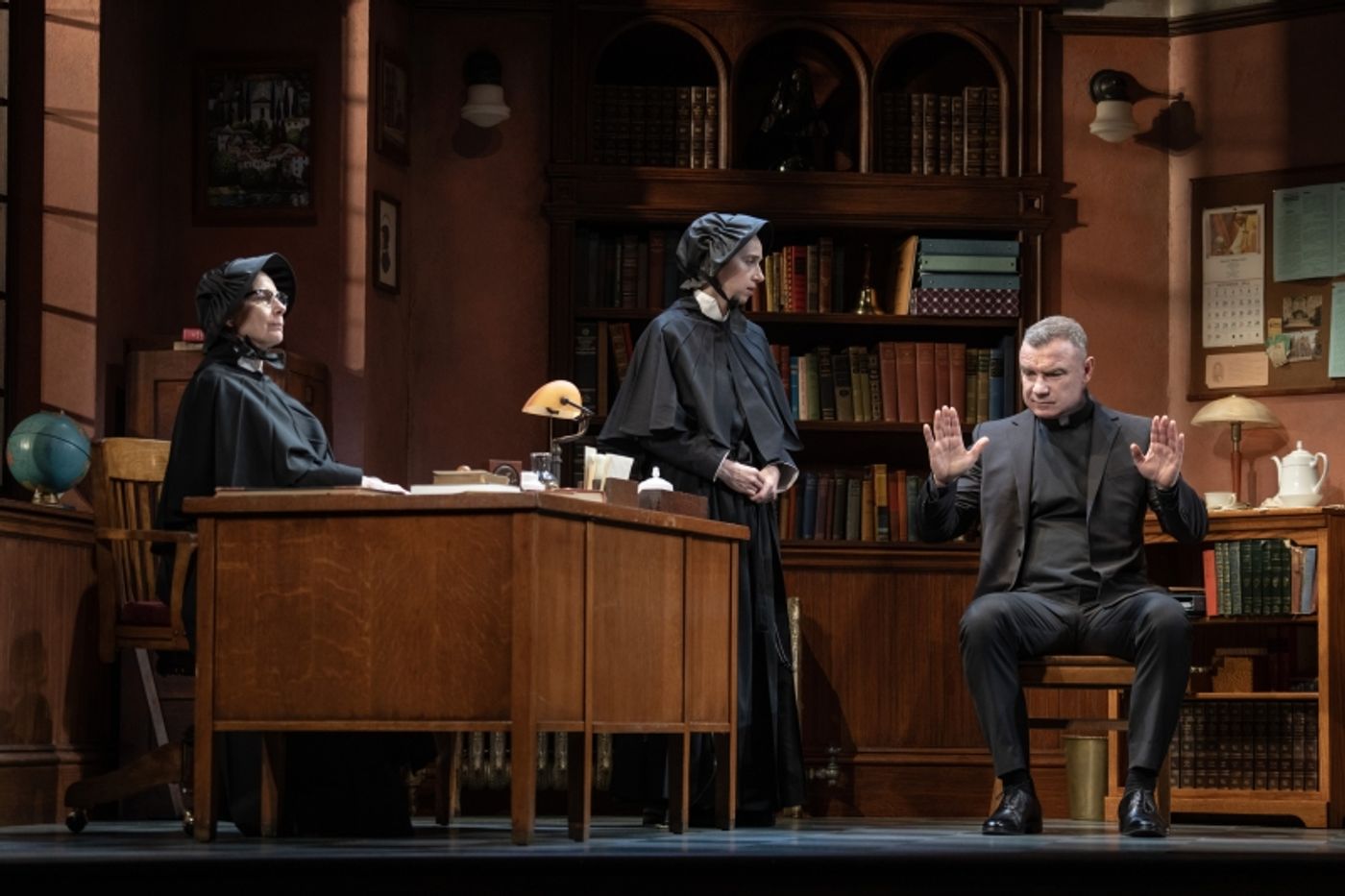Interview: How Zoe Kazan Was Pulled to DOUBT: 'I Have to Be a Part of This'
Doubt is running through April 21 at the Todd Haimes Theatre.

Zoe Kazan, known for her work in film, television, and on stage, is a multi-talented artist with a diverse career that includes acting, playwriting, and screenwriting. Kazan previously starred on Broadway in Manhattan Theatre Club’s revival of William Inge’s Come Back, Little Sheba, the world premiere of Martin McDonagh’s A Behanding in Spokane, and the 2008 revival of Chekhov’s The Seagull, which earned her a Drama Desk nomination.
As a playwright, Kazan has had four plays produced, including We Live Here (Manhattan Theatre Club) and After the Blast (LCT3).
On screen, Kazan has starred in She Said, The Ballad of Buster Scruggs, The Big Sick, It’s Complicated, and Ruby Sparks, for which she also wrote the screenplay. Kazan also co-wrote and co-executive produced the 2018 film Wildlife, and she is currently adapting John Steinbeck’s novel East of Eden as a limited series for Netflix.
Kazan is currently starring on Broadway in Doubt, opposite Liev Schreiber and Amy Ryan. BroadwayWorld spoke with Kazan about what her drew her to the play, the timeliness of the work, and much more.
You are a multi-talented, multi-faceted artist, you have starred on screen and onstage, you have written for both the screen and the stage. I’m sure they all feed your soul in different ways, what is your favorite part about acting on stage?
Oh, God, everything! love being on stage. I think it's the thing of making it together every time, both with your cast and crew, and with the audience. It's this thing that we all do together. It's like being extra alive or something. It requires a kind of zen presence that is very exhausting and also totally electrifying, and it's mysterious. It's like the drug that keeps me coming back for more [laughs]. Sometimes I feel that way acting on film or in front of the camera, but most of the time that's something that only happens for me on stage.
There’s nothing like live theater.
Yeah, I mean, as a viewer, even going to like a middle school musical, I'm transported by the event of it. It just seems really exciting to have everybody's attention be in the same place at the same time, willing this moment into existence. It requires everyone's participation.
How did you approach the role of Sister James, and what was your process like in finding the character?
When I first got cast in it, I reread the play and was shocked by how new it felt. I had never seen it I don't think, but I had read it, and it had entered the zeitgeist in a real way, with the play and then the movie- I was sort of suffused with knowledge of it. And then reading it, I felt like, ‘Oh, this could have been written this year.’ I think we all approached it as if it were either a new play or A VERY OLD play, like a piece of text that was ours for interpretation. I spent months before we started rehearsal examining the text the way I would look at Shakespeare or something, looking at the rhythms of it, and the punctuation, and how long her thoughts were, and when she broke the patterns of her usual speech. But I guess the most notable thing to me was just how much we all felt like we could treat this text like it was a classic piece of text.
And we have an amazing Associate Director on this project, Adam Coy, who did a bunch of research for us, so, reading a lot about things that I didn't know that much about. I wasn't raised Catholic, so there was a lot of it that I didn't know that much about before. The rehearsal process, as it always is, is an amorphous and mysterious thing. I had to sort of find Sister James in myself.

What about doing Doubt right now was important to you?
I read about the production in the New York Times when Liev and Tyne’s casting was announced, and I immediately texted my agent and said, “If they’re seeing people for Sister James, please ask if they'll see me,” which is not something that I had done in a long time. At the time I had a six month old baby and a four year old, I was not looking to do a play. So, I really surprised myself. I just had this very strong feeling like, ‘I have to be a part of this.’ And when they called me back and said “They want to cast you," then I started asking the same question that you just did of, “Why? Why am I having this response?” and “What about this feels urgent to me?”
John Patrick Shanley in his introduction to the play that he wrote in 2005 talked about him responding to the culture that had basically become atomized. Where people stopped listening to each other and where debate had turned into people shouting at each other and not listening. And I thought, ‘Oh wow, if he thought that in 2005, I'm not sure what he feels now.’ The sense that internet culture has calcified people around their certainty sometimes feels very dangerous to me. And there's something beautiful in the play about the idea of doubt being a gift, doubt being the seeds of change.
There was a thing in the New York Times crossword the other day, the answer to the question was ‘doubt’, and the quote was from Rene Descartes, ‘doubt is the origin of wisdom’. And that's what I think the play’s feeling is, for me. More than questions of one fictional man's innocence or guilt, it's more about people's relationship to doubt and people's relationship to certainty, and how doubt can be used as a tool against tyranny in an institution, and how institutions are built to protect, or not, and who they are designed to protect, or not. These questions feel like really good questions to be asking right now. There just seems to be something very hot at the center of it that is, in a weird way, for me, hotter today than it was 20 years ago.
How has it been working with Amy Ryan and Liev Schreiber?
Ugh, they're just the greatest. We're having the most wonderful time. Amy and I worked together seven years ago, the last play we both did, it was this play, ‘Love, Love, Love’ at the Roundabout Off-Broadway. And I loved working with Amy, and it feels the same now. I'm just totally captivated by her humor and her like chameleon-like ability, and her quickness on stage. She did this heroic thing of coming in and replacing Tyne after Tyne had to leave us, sadly. And I just couldn't be more impressed with how she has done that. She's a really ballsy and stalwart woman, and I love watching her work.
And Liev has been one of my acting heroes for so long, and I've loved getting to watch his process. He's so dogged in pursuit of the best version of the thing, and he's got such a strong curiosity about why the text is built the way it is, and how we intersect with that. I feel like he really was such a good force for building this so that we can do it every night, in that sort of magical way where you're trying to reproduce something without it feeling like a replica. I feel like he really helped us get to that place.
And also Quincy [Tyler Bernstine] is like my total love. And even though we don't share any time on stage together, I feel like we've really built this very close-knit company. It feels kind of magical that this has been able to happen within so much turmoil for a period of our preview.

What do you hope that audiences take away from this production?
I hope that they leave thinking about it. I think there's something very moving in the play, but I do think it's trying to make people think more than it's trying to make people feel. And I hope people leave full of conversation and deep thought. Also, it’s a brisk 90 minutes, which, personally, I love. I love an intermission free, you get on the train and you never get off kind of theatrical experience. So, I hope people walk away from that filled with energy and not totally enervated from their evening at the theater.
Photo credit: Joan Marcus
Powered by
|
Videos

